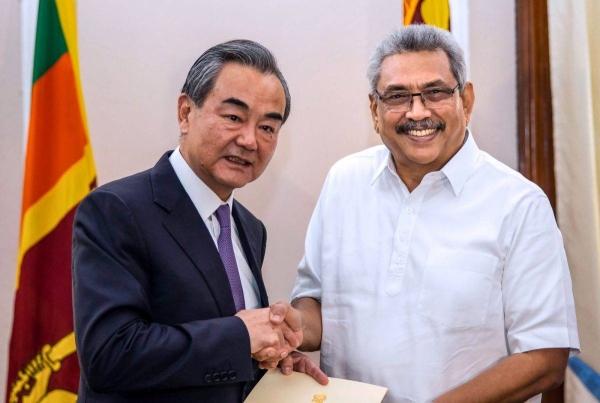As part of measures to help the South Asian country manage its worsening financial predicament, Sri Lanka’s president has asked China to modify its loan obligations.
The proposal was made by Gotabaya Rajapaksa during a meeting with Chinese Foreign Minister Wang Yi on Sunday.
Over the previous decade, China has provided Sri Lanka more than $5 billion (£3.7 billion) for infrastructure projects such as roads, airports, and ports.
China was urged to provide “concessional” terms for its exports to Sri Lanka, which totaled roughly $3.5 billion last year, according to the statement, but no further details were provided.
Prior to the pandemic, China was one of Sri Lanka’s most important tourism destinations. China is also the country from which it imports the most goods.
Sri Lanka has been mired in a severe financial and foreign exchange crisis in recent months, exacerbated by the loss of tourist revenue during the outbreak.
China has provided the country with billions of dollars in soft loans, but the island nation has been engaged in a foreign exchange crisis, which some analysts believe has brought it to the brink of default. Sri Lanka has $4.5 billion in debt to repay this year, beginning with a $500 million international sovereign bond that matures on January 18th.
Sri Lanka is an important part of China’s Belt and Road Initiative, a long-term strategy to fund and construct infrastructure that connects China and the rest of the world. Some countries, including the United States, have called the project a “debt trap” for smaller and poorer countries.
Beijing has long denied the charges, accusing individuals in the West of spreading the storey in order to smear its image.
Last month, a Sri Lankan government minister stated that the country planned to use tea to pay off a debt owed to Iran for past oil imports. In September, Sri Lanka declared an economic emergency after a dramatic drop in the value of its currency, the rupee, caused food prices to increase. Authorities have announced that they will assume control of essential food supply such as rice and sugar, as well as set pricing, in order to combat rising inflation.











More Stories
Microsoft announces further layoffs in its gaming division
McDonald’s to Reevaluate Pricing Following Drop in Sales
Disneyland workers have expressed that they are living in cars and motels due to their low pay